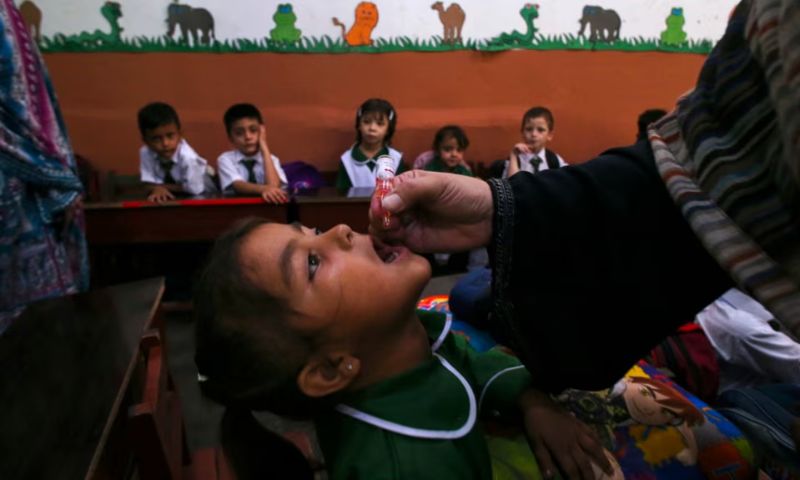ISLAMABAD: Pakistan has reported that two children in Sindh province have been paralyzed by the poliovirus, increasing the total number of cases in the country to 39 for 2023.
This marks a worrying resurgence for a nation that had seen over a year without documented cases prior to this year. Since the first confirmed case in March, the country has recorded six instances of paralytic poliovirus infections, raising alarm about the effectiveness of its vaccination efforts.
In response to the new infections, a statement from Pakistan’s polio eradication program noted that genetic sequencing is underway to understand the outbreak better. They emphasized that the increase in polio cases highlights the severe consequences for children who miss vaccination opportunities. Pakistan and neighboring Afghanistan remain the only countries where polio is still endemic, with Afghanistan reporting at least 20 cases this year.
To combat this resurgence, Pakistani officials are gearing up for a nationwide vaccination campaign set to launch on October 28. The goal is to immunize over 45 million children under the age of five against paralytic poliovirus. The health program has called on parents to cooperate with vaccination teams, urging them to ensure that all eligible children receive the crucial oral polio vaccine.
The rise in polio cases is primarily attributed to boycotts of vaccination drives by parents in rural areas, who often believe the initiatives are part of a Western conspiracy to sterilize Muslim children. Additionally, anti-state militants in violence-prone regions near the Afghan border frequently attack vaccinators and their police escorts, compounding the challenges of the vaccination campaign. The violence has led to the deaths of numerous security personnel and vaccinators, further jeopardizing public health efforts.
An independent monitoring board for the Global Polio Eradication Initiative reported that over 420,000 children in Pakistan were unable to receive vaccinations in 2024 due to ongoing boycotts, especially in Khyber Pakhtunkhwa, where more than 200 instances of resistance to vaccination campaigns were noted last year. The report also highlighted the impact of insecurity and violence on vaccination efforts in impoverished districts, where residents often demand basic services like electricity and road construction in exchange for allowing vaccinations.
Despite the challenges, Safi Malik from Pakistan’s Ministry of Health emphasized that polio eradication remains a top priority. He reported to a recent World Health Organization meeting that the country is focused on halting virus transmission by 2025 through improved campaign quality, digital tracking of missed vaccination areas, and enhanced collaboration with Afghanistan for cross-border vaccination efforts. The situation remains critical as Pakistan grapples with the resurgence of polio, stressing the urgent need for community cooperation to protect vulnerable children.























